#UMMCGrad2020: Health Sciences duo proud to be UMMC’s first C2C grads
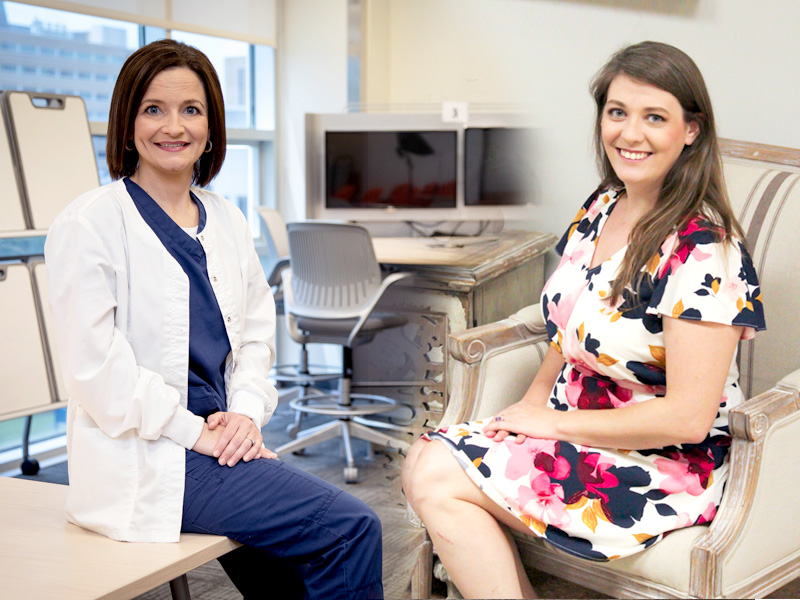
An 18-year veteran of health care in Mississippi, Margaret McGaugh had accumulated invaluable experience in the industry, including direct patient care, service line implementation, marketing, management and training in pre-hospital, ambulatory, hospital and nursing home settings.
Director of revenue cycle and electronic health records at Delta Health Center in Mound Bayou, the Bolivar County resident had been seeking a way to leverage the 100 college hours of credit she had earned - primarily in science - in a way that could benefit her career.
“I was unable to advance due to most employers requiring certain degrees, no matter the length of experience,” McGaugh said.
Similarly, as a certified ophthalmic assistant at the G. V. (Sonny) Montgomery VA Medical Center next door to the University of Mississippi Medical Center’s Jackson campus, Pearl native Katheryn Easterling McCardle had established an impressive health care career.
She had attended college and changed her major a few times, but she hadn’t been able to complete her degree. With a fourth- and seventh-grader at home and a full-time job, squeezing in the time to obtain an academic credential seemed improbable.
“Working and having a family is hard enough,” McCardle said. “Going back to school for any person with a family can be stressful.”
Life’s demands may have caused them to meander a bit from their respective scholarly plans, but a program offered by the School of Health Related Professions at UMMC has helped them fulfill their academic potential.
When McGaugh and McCardle each receive their Bachelor of Science in Health Sciences degrees from SHRP this month, they will represent the first two graduates of the Complete to Compete Program at UMMC.
Created by the Mississippi Institutions of Higher Learning and the Mississippi Community College Board, the C2C Program is a statewide initiative to help Mississippi adults who have attended college but don’t have degrees to obtain their diplomas and create a brighter future.
According to its website, the C2C initiative allows the state to increase the number of adults with “postsecondary degree or credentials of value,” which will positively impact Mississippi’s educational attainment rate, economy and quality of life for the graduates. All 15 public community colleges and eight public universities participate in the program.
To qualify for the program, participants must be 21 or older, have attended a public college or university in Mississippi and have earned at least 90 hours of college credit but have not earned a bachelor’s degree. They also must have been out of college for at least two years.
SHRP leadership initially approached Dr. Cynthia Casey, associate professor of health sciences, about participating in the statewide initiative.
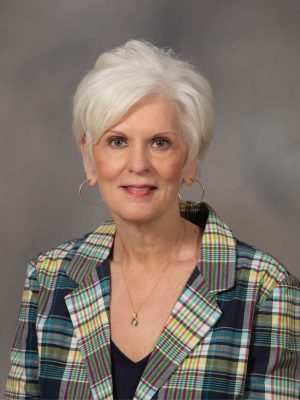
“After investigating the program to see what it was all about, I was totally on board to get it started,” Casey said.
Britney Reulet, assistant professor of health sciences who directs SHRP’s C2C Program, said because the Health Sciences Program is offered completely online, potential students have the ability to continue their full-time jobs while completing their course requirements.
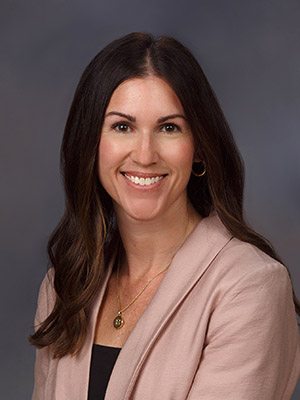
“There are so many individuals who started their college journey and, for one reason or another, were not able to complete their degree,” Reulet said. “This also provides students who may not have a background in health care to gain knowledge and insight that can help them transition into a career in health care.”
McGaugh entered the Health Sciences Program as a C2C student in summer 2018; McCardle followed her that fall.
“Both students were in health care, so it made sense for them to apply to the health sciences program,” Casey said. “In addition to meeting the C2C requirements, they also had to meet our requirements for the health sciences program.
“They both already had the qualities of being able to work in a group, to demonstrate their leadership skills and to do good work in an academic setting.”
Molly Ratcliff, director of admissions and learning advancement in SHRP, said the C2C participants must fulfill the same rigorous scholarly requirements as their fellow B.S.H.S.-candidate colleagues.
C2C provides the students with coaches to help them develop a degree plan tailored to their specific needs. SHRP’s C2C coaches are Colette Turner, SHRP administrative assistant, and Deann Walter, SHRP student services coordinator.
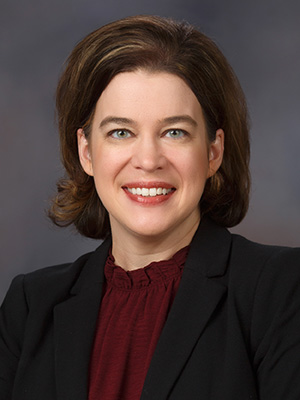
“Once a student applies through the C2C dashboard, they immediately make contact with them,” Casey said. “The coaches are their point of contact throughout the program.”
“They are the ‘go-to’ people for questions about courses, how to apply, etc.,” Ratcliff said. “While we do that for all of our students, they are extremely knowledgeable about and dedicated to helping the students fulfill the C2C requirements.”
McGaugh said C2C stood out to her as a program made for working professionals with prior experience in health care.
“It meant the instructors would be relying on our past experiences to pull the educational portion together,” she said. “I would be able to think back to my experiences and see how I could have handled them differently or how I would be able to use the (information learned) going forward.
“The fact that the program is part-time made it feasible to complete while still being able to commit fully to my family and my full-time job.”
Casey said the courses grow the C2C students’ skills and could allow graduates to advance to leadership positions in health care.
“They take courses with titles such as Strategic Decision-making, Leadership Development, Introduction to Research and Principles of Health Care Management,” Casey said. “They also do a capstone project at the end of their academic career.”
C2C appealed to McCardle partly because the program allowed her to apply her previous college credits towards her health sciences degree.
“Within five semesters at two classes a semester, I would finally graduate,” she said. “That was one of the major benefits for me.”
Although becoming a student again wasn’t without its stresses, McGaugh said she had a good support system to help her through any difficult times academically.
“My family was there every step of the way, not only ensuring I had time to study and do homework, but also actively asking how class was going,” she said. “My colleagues were the same. They were invested in me and the program.”
McCardle said she had taken other courses while working full-time, so the experience wasn’t new, “but the professors are very understanding and are willing to help you when you need it.”
During the final semester of the health sciences program, students are primarily absorbed in developing, researching and writing capstone projects – an exercise made all the more difficult this year with the worldwide COVID-19 pandemic that reached UMMC during Spring Break.
“Even though health care is always changing, these past few months have created many more changes within the health care system than normal,” McGaugh said. “My position at work requires me to stay abreast of all the changes in order to ensure we are following them correctly.
“Work expectations also increased, but not only for me. We all have stepped up to the challenge and are dealing with COVID-19 the best we can while making sure our patients still receive the best possible care.”
“The biggest problem was making sure my kids were doing their schoolwork online along with me doing mine,” McCardle said. “Discipline in getting the work done is key to finishing your degree, even when you don’t feel like it.”
McGaugh said she plans to continue her educational pursuit as a means of enriching her current role in health care. Already, she has been accepted into the Master of Health Sciences Program that will begin later this month.
“The company I am with now . . . knew I would be learning valuable information during the program that would benefit not only myself, but the company and our patients,” she said. “I am able to look at issues in a new light, tackle these issues in ways I would not have thought of previously and bring together the teams I am responsible for to create a seamless environment at work.
“I know the master’s program will only provide more information that I can use to overcome the issues any clinic has when it comes to providing true quality care.”
“Applying to continue her studies as a master of health sciences student says a lot about her attitude and her desire to continue her education,” Ratcliff said.
McCardle said she may find herself on a similar path as well.
“I hope this will give me more opportunities for advancement,” she said. “I may possibly apply for my master’s degree in the near future.”
Ratcliff said since its inception, C2C has become a continuous program in SHRP: Additional health sciences students are currently in the C2C pipeline.
The first C2C graduates both recommend the program to health care professionals in Mississippi who may not have had the opportunity to complete their degrees.
“The instructors (in SHRP) take their time and truly care for the students,” McGaugh said. “They want the students to succeed, in the program and in their professional lives.”
“I would recommend it if you have a lot of credit hours already and have a busy life,” McCardle said. “The two courses at a time make it a little easier when juggling a family and full-time work.”
The most difficult part of C2C, according to Reulet, is merely getting started.
“My advice to someone who is considering returning to complete their degree is to simply start the process,” she said. “That seems to be the hardest part. The Complete to Compete initiative offers scholarship funds to qualified students.
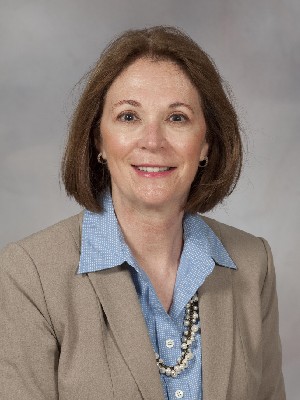
“So for anyone that is considering completing a degree they began years ago, reach out to us and see how valuable the C2C program could be for you.”
None other than the School of Health Related Professions dean, Dr. Jessica H. Bailey, recognizes the C2C program’s value to health care professionals who wish to complete their education.
“We as administrators, faculty and staff are here at SHRP to help all students reach their fullest potential,” Bailey said.


